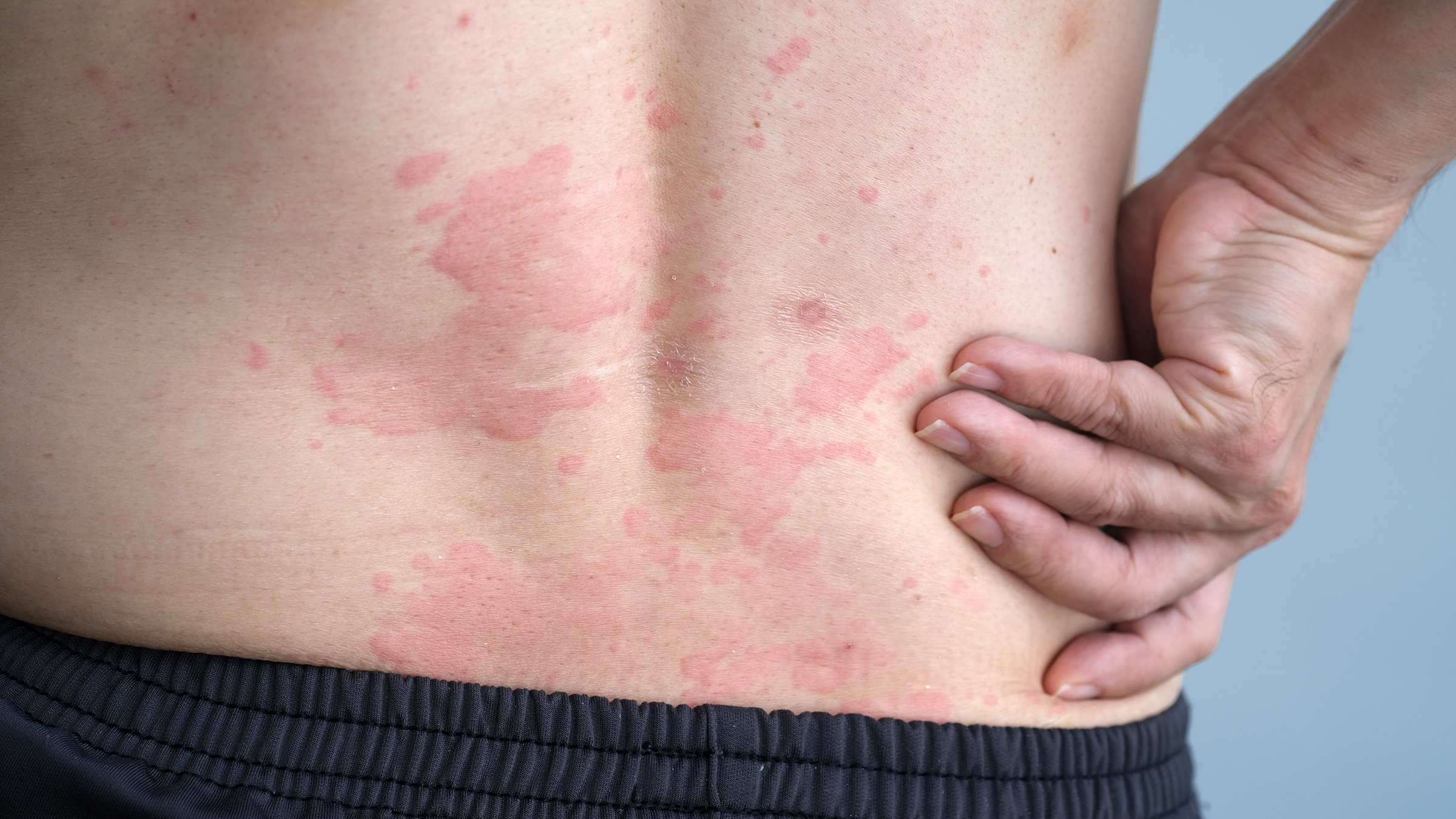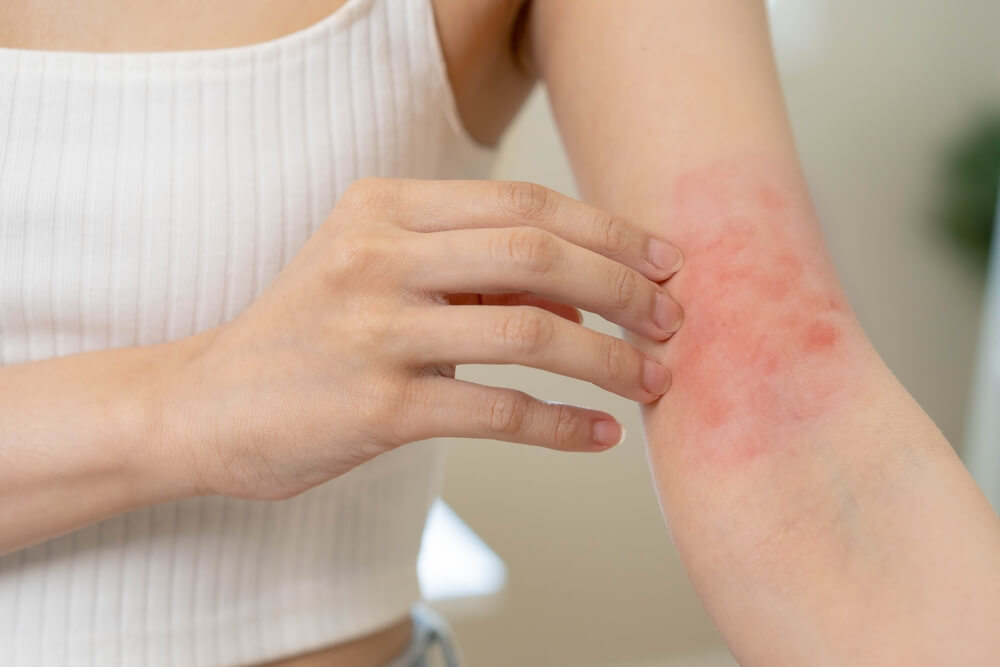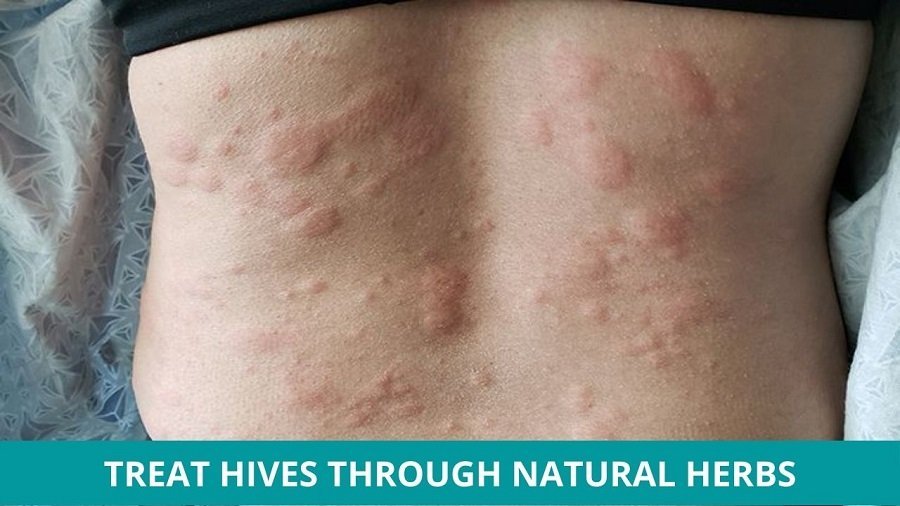Introduction
How to Cure Hives Fast at Home also known as urticaria, are itchy, red welts that can appear anywhere on the skin. Antipathetic responses, stress, or other triggers similar to infections or environmental factors frequently cause them. While hives can be uncomfortable, the good news is that you can frequently treat them effectively at home. There are some proven styles to cure hives and gormandize using natural remedies and simple practices.

1. Cold Compress
Applying a cold compress to the affected area is one of the quickest ways to reduce itching and lumps. The freezing temperature constricts blood vessels and reduces the release of histamine, the chemical responsible for hives.
How to use
Wrap ice cells in a clean cloth or use a cold pack.
Apply it to the affected area for 10- 15 twinkles.
reprise several times a day as demanded.
2. Oatmeal Bath
An oatmeal bath can soothe bothered skin and reduce inflammation caused by hives. Oatmeal contains anti-inflammatory parcels that can give relief from itching.
How to use
Add one mug of colloidal oatmeal to a lukewarm bath.
Soak in the bath for 15- 20 twinkles.
Pat your skin dry gently with a kerchief.
3. Baking Soda Paste
Baking soda pop has alkalizing parcels that can help relieve itching and vexation caused by hives.
How to use
Mix two soupspoons of incinerating soda pop with enough water to form a paste.
Apply the paste to the hives.
Leave it on for 10- 15 twinkles, and also wash it with cool water.
4. Aloe Vera Gel
Aloe vera is known for its cooling and anti-inflammatory parcels, making it an excellent remedy for hives.
How to use
Excerpt fresh aloe vera gel from the splint.
Apply the gel directly to the hives.
Leave it on for 20 twinkles and wash with cool water.
reprise 2- 3 times daily.

5. Apple Cider ginger
Apple cider ginger has natural antihistamine and anti-inflammatory parcels, which can help palliate hives.
How to use
Adulterate one part apple cider ginger with one part water.
Apply the result to the hives using a cotton ball.
Leave it on for 10 twinkles before irrigating off.
Alternately, add a mug of apple cider ginger to a lukewarm bath and soak for 20 twinkles.
6. Avoid Triggers
relating and avoiding triggers is pivotal in precluding the rush of hives. Common triggers include certain foods, specifics, stress, and environmental allergens.
Tips to avoid triggers
Keep a journal to track what may have caused the outbreak.
Avoid known allergens like pollen, pet dander, or specific foods.
Practice stress-relief ways like contemplation or yoga.
7. untoward Antihistamines
still, untoward antihistamines can help reduce itching and lump, If natural remedies aren’t furnishing enough relief. Look for non-drowsy options like loratadine or cetirizine for day use.
How to use
Follow the lozenge instructions on the marker.
Consult a croaker
if you’re doubtful about the correct drug.
8. Stay Doused
Drinking plenitude of water can help flush out poisons and allergens from your system, promoting faster mending.
How to stay doused
Aim to drink at least 8 spectacles of water a day.
Include hydrating foods like watermelon, cucumber, and citrus fruits in your diet.

9. Herbal Teas
Certain herbal teas, similar to chamomile and green tea, have anti-inflammatory and antihistamine parcels that can help reduce hives.
How to use
Brew a mug of chamomile or green tea.
Allow it to cool slightly before drinking.
Consume 2- 3 mugs a day for stylish results.
10. Seek Medical Attention if demanded
While home remedies can be effective, it’s important to seek medical attention if
Hives persist for further than a week.
You witness difficulty breathing or swelling in the throat.
The condition worsens despite treatment.
Fresh Tips for Managing Hives
Stress operation plays a pivotal part in reducing the frequency and inflexibility of hives. habitual stress can weaken the vulnerable system and make your body more susceptible to antipathetic responses. Consider incorporating diurnal stress-relief conditioning like awareness contemplation, journaling, or taking short walks to ameliorate your internal well-being.
Another effective way to manage hives is to wear loose, comfortable apparel made of natural fabrics like cotton. Tight or synthetic apparel can irritate the skin further and complicate the condition. conclude for permeable accouterments that minimize disunion and help keep the skin cool.
A balanced diet can also strengthen your vulnerable system and reduce the liability of hives. Include foods rich in vitamins C and E, similar to oranges, spinach, and almonds, as they’re natural anti-inflammatory parcels. Avoid reused foods and allergens that could spark outbreaks.
still, keeping your skin cool is essential, If you witness hives due to heat or sweating. Use suckers, wear featherlight apparel, and avoid exorbitantly hot surroundings. Taking regular cool showers can also help palliate symptoms and help further vexation.
For individuals prone to recreating hives, having a first-aid tackle with antihistamines, hydrocortisone cream, and soothing gels can be a lifesaver. Keeping these rudiments on hand allows you to address flare-ups incontinently and prevent them from worsening.
Incipiently, consider consulting a dermatologist or allergist for substantiated advice. They can conduct tests to identify specific allergens and give acclimatized treatments. This visionary approach ensures long-term operation and minimizes unborn outbreaks.

Conclusion
Hives can be uncomfortable, but with these simple and natural remedies, you can find relief snappily at home. Flashback to identify and avoid triggers to help unborn outbreaks. However, consult a healthcare professional for proper treatment, If symptoms persist or worsen. By taking a visionary way, you can manage and cure hives effectively, icing healthier and happier skin.
Read More: Siri Apple Intelligence: 2024 Best Guides
Read More: You can save yourself the trouble of buying these dietary supplements against hair loss
FAQs
Antipathetic responses, stress, or environmental triggers like pollen or certain foods frequently cause hives.
Hives generally last many hours to a day, but habitual cases may persist for weeks.
Yes, untoward antihistamines can help reduce itching and swelling snappily.
No, hives aren’t contagious and can not spread from one person to another.
See a croaker if hives persist for over a week or if you witness difficulty breathing.

